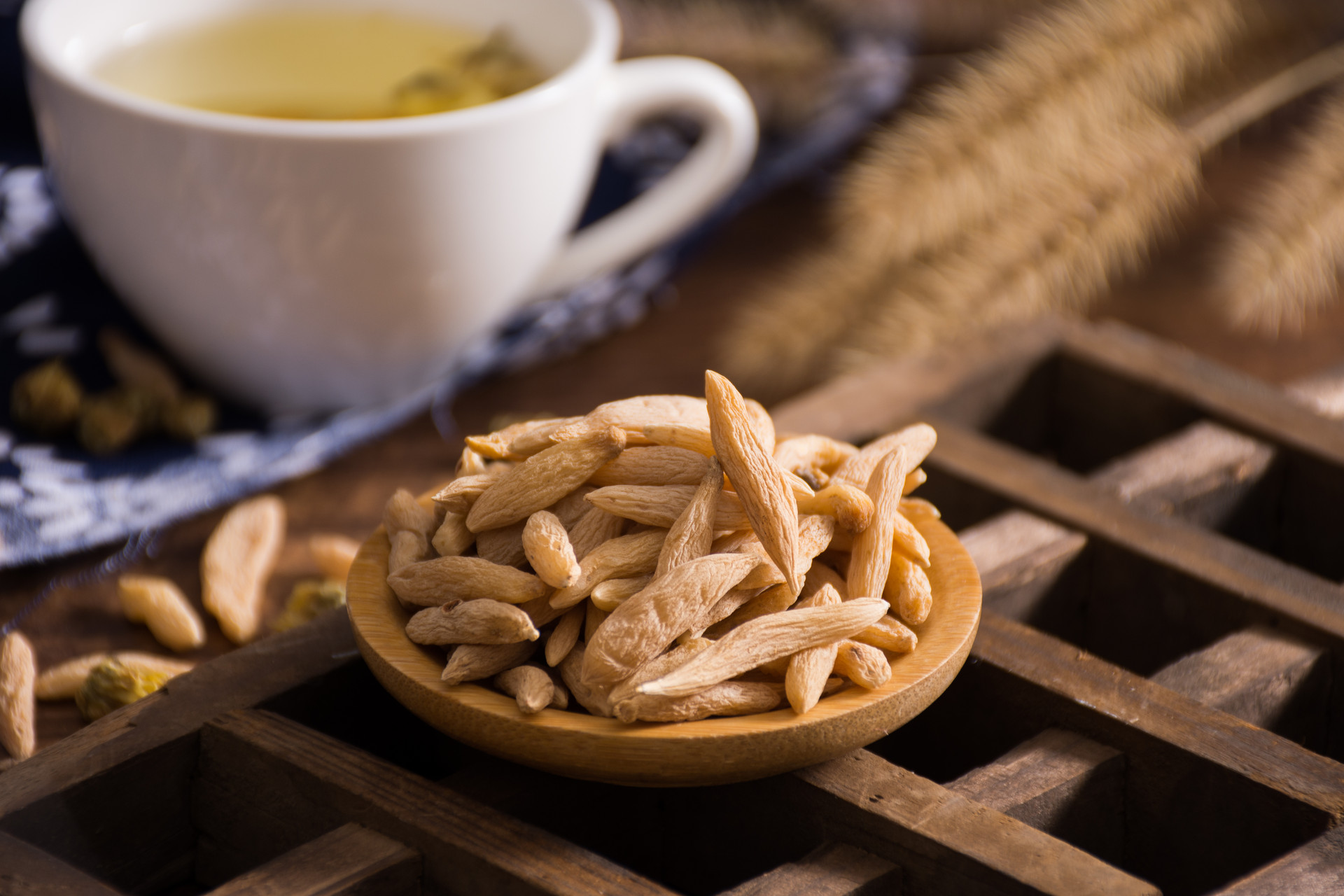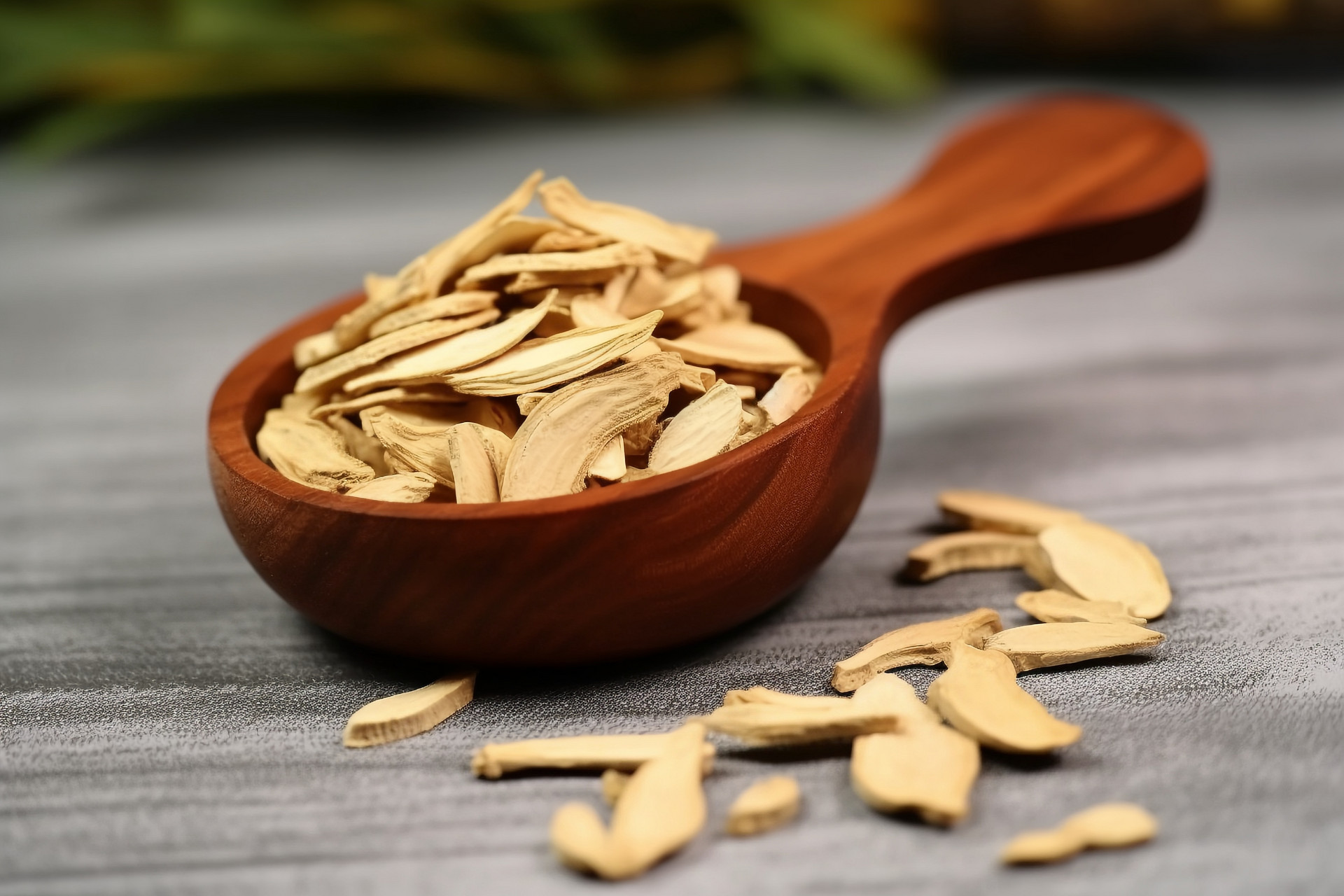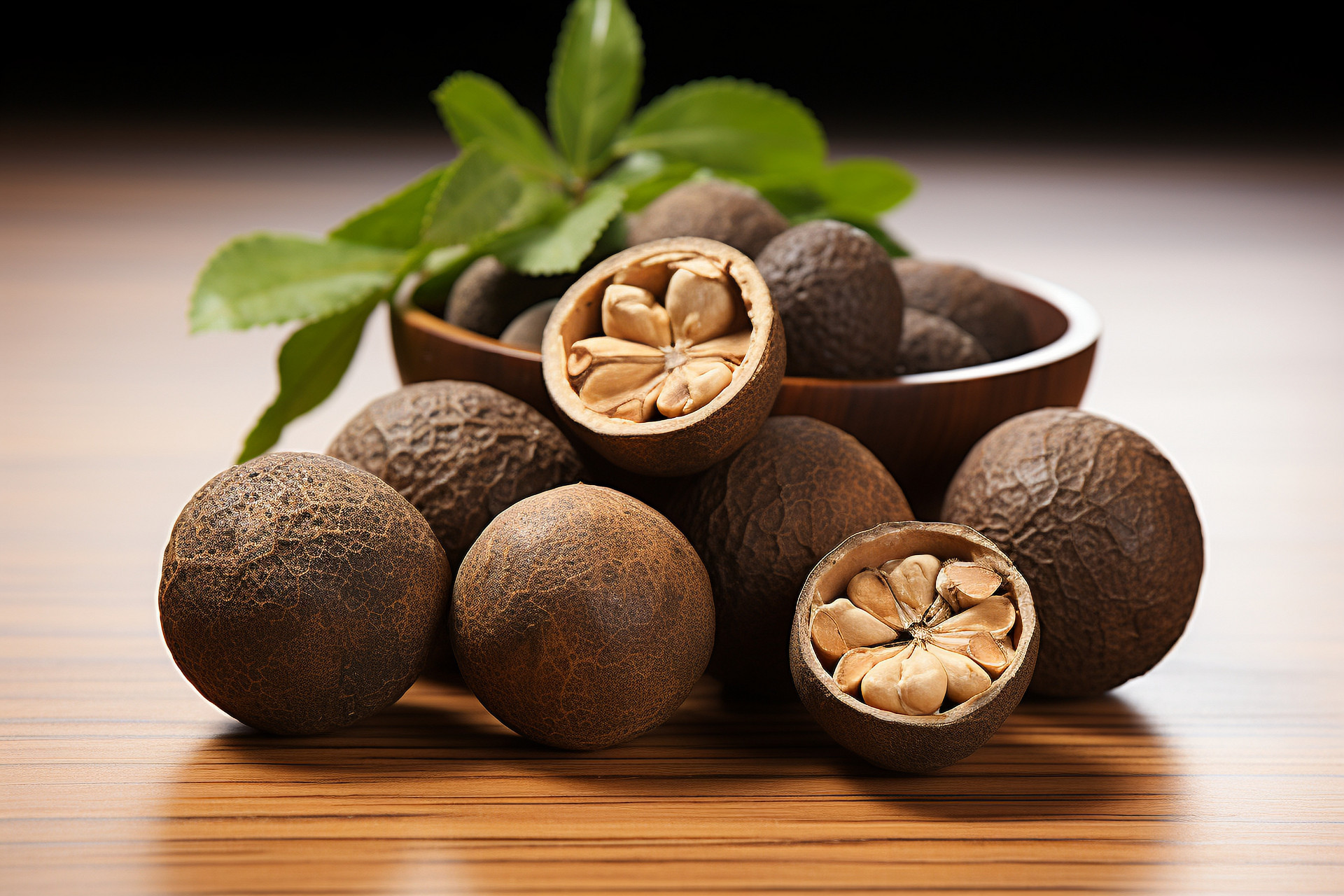Lei Wan, also known as Lei Ya or Lei Shi, is the sclerotium of the polypore fungus Lei Wan. Lei Wan has a cold nature, a bitter taste, and a slight toxicity. It enters the stomach and large intestine meridians and has the effects of promoting digestion and killing parasites. It is used to treat abdominal pain caused by intestinal worms, malnutrition, epilepsy, and other conditions. It is important to be cautious of counterfeit Lei Wan on the market, which is often made from the seeds of the plant Artocarpus heterophyllus.
Genuine Lei Wan
The dried sclerotium is spherical or irregularly round, varying in size with a diameter of 1-2 cm. The surface is purplish-brown or grayish-brown, with prominent reticulate wrinkles and occasional remnants of fungal hyphae in the depressions. The texture is firm and heavy, not easily broken. The cross-section is uneven, powdery white or pale grayish-yellow, granular or powdery. The compact texture is semi-transparent, showing alternating patterns of translucent and opaque portions, resembling marble-like texture. It has no odor and a mild taste. When chewed, it initially feels grainy and slightly mucilaginous, but eventually dissolves without residue.
Counterfeit Artocarpus heterophyllus
The seeds are numerous, enclosed in soft yellowish flesh. The seeds are irregularly oval, measuring 1.8-2.5 cm in length, about 1.3 cm in width, and about 0.5 cm in thickness. The surface is uneven with blunt edges, yellow-brown or gray-black in color, with slightly raised fine wrinkles. Some may have remnants of hairs and a distinct circular hilum. The texture is hard, and the longitudinal section reveals horny, brown endosperm with two cotyledons in the center. The cotyledons have 5-7 veins, and the embryonic root is 3-4 mm long. It has a faint odor and an extremely bitter taste, indicating high toxicity.
Modern pharmacological studies have shown that genuine Lei Wan has a strong anthelmintic effect. Artocarpus heterophyllus seeds, on the other hand, do not belong to the same plant family as Lei Wan and are highly toxic. Although they can be used medicinally, their effects are completely different from Lei Wan. Therefore, Artocarpus heterophyllus seeds should not be used as a substitute for Lei Wan, as their misuse can lead to poisoning and adverse consequences. It is important to exercise caution and be meticulous in the use of these substances.











